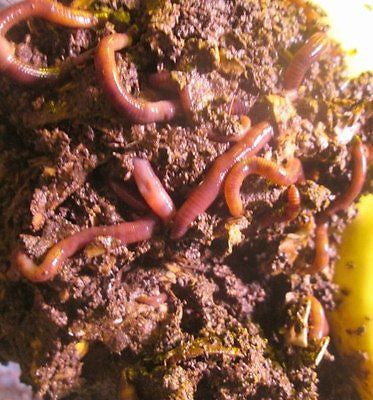The Only Guide for Red Wiggler Express
The Only Guide for Red Wiggler Express
Blog Article
The Best Guide To Red Wiggler Express
Table of ContentsThe Red Wiggler Express PDFsSome Known Factual Statements About Red Wiggler Express Red Wiggler Express for BeginnersThe Buzz on Red Wiggler ExpressHow Red Wiggler Express can Save You Time, Stress, and Money.
And the prospering Red Worm population? Also in the load that was established up straight in front of yard composters with existing Red Worm swarms.
Numerous varieties, including Red Wigglers, European Nightcrawlers, and Lumbricus types were brought over from the European continent. Yet right here's the thingNative or otherwise - and as skilled as they are at being able to make it through in a wide-range of atmospheres and conditions -. Simply put, they are far more likely to socialize in any energetic composting systems you have established up, than they are to roam off and begin messing up the environment.
Origins need oxygen for respiration and depend on smooth air movement within the dirt to prosper. However, when it rains, soil can end up being saturated with water, minimizing the oxygen available and impeding vitamins and mineral absorption - Worm Farms United States. To preserve an optimum equilibrium, the soil needs to enable water to drain pipes adequately, leaving adequate space for air to support origin health
The Definitive Guide to Red Wiggler Express

When it concerns worms for composting, what enters your mind? If you were an earthworm breeder, supplier, or simple garden enthusiast, then you 'd recognize that red wiggler worms are the perfect worms for vermicomposting. For more information regarding these earth wonders, reviewed a few of the red worm truths below.
(https://www.directoryanalytic.com/details.php?id=339153)However if they stretch their bodies, you'll have the ability to see the red stripes on their skin. When elevating worms such as red wiggler worms, you ought to have the ability to recognize just how to profit them. When you're able to keep and care for their environment well, and additionally feed them the ideal sort of organic wastes, then they'll be able to generate nutrient-packed and quality-rich worm castings for you (likewise understood as worm poop or compost).
How Red Wiggler Express can Save You Time, Stress, and Money.
What do worms consume? Well, these red wriggler worms can be fed with kitchen scraps and garden wastes.

This actions makes them appropriate permanently in worm containers, compost heap, and other confined rooms where natural waste is plentiful. Producing an optimum atmosphere for red wigglers calls for a thoughtful technique. Consider the adhering to necessary components to look after red wigglers in your home and guarantee their well-being: Make use of a bed linens of shredded newspaper or cardboard.

Add a handful of completely dry, shredded newspaper if the bin becomes as well wet. Without a doubt, they do! Red wiggler worms replicate by laying small, lemon-shaped eggs in safety cocoons. These cocoons are normally transferred in the bedding and hatch into baby worms within a couple of weeks. The rapid recreation cycle of red wigglers is among the reasons they are preferred for vermicomposting.
Red Wiggler Express Fundamentals Explained
Their flexibility and durability have actually made them a popular choice for vermicomposting in numerous areas around the globe. Yes! They can make it through from a variety of 32F to 90F. They are incredibly versatile critters. Take into consideration protective actions for very extreme temperature levels such as: Insulating the worm container with layers of straw or leaves.

When dealing with your red wigglers it is necessary to bear in mind to: 1) K.I.S.S (Keep it Simple) and 2) every little thing in moderation. These policies apply to feeding your compost worms, sprinkling your worm bins, and almost whatever else involved in taking care of them. Just bear in mind - you can constantly add more food later (however it's tough to remove feed once it's been contributed to a container!).
Since I fed the red wigglers and garden compost worms way too much, they weren't able to maintain up and in time the older food went leftover and created anaerobic problems that killed the worms. The great news is that there are extremely easy actions you can require to guarantee this does not take place! Here're the 6 golden guidelines for exactly how commonly and just how much to feed your worms: Guideline # 1: Small amounts! You can constantly include even more food later on.
All About Red Wiggler Express
Uneaten food will lead to anaerobic conditions that will kill your real-time worms. Rule # 6: After the very first feeding, feed the worms 1/3 to 1/2 of their weight.
Report this page